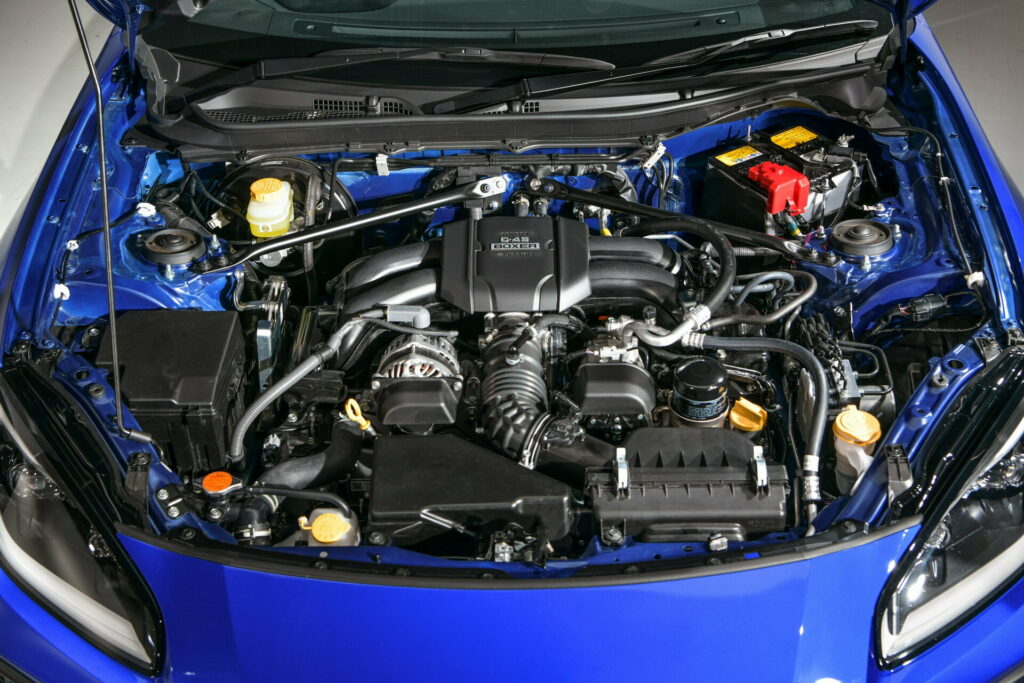- A new lawsuit states the 2.0-liter and 2.4-liter engines are prone to catastrophic failure.
- Plaintiff alleges her Toyota 86’s engine failed after only about 64,000 miles.
- It’s claimed Toyota and Subaru are aware of the issues but have not addressed them.
A woman in the US has filed a lawsuit against Toyota and Subaru, claiming that the flat-four engines found in the related Scion FR-S, Toyota 86/GR 86, and Subaru BRZ models are prone to catastrophic failure at low mileage, even within the warranty period.
Plaintiff Laura Young purchased a used 2019 Toyota 86 in October 2021, but less than two years later, in April 2023, the car experienced a sudden loss of power, and the engine failed with just ~64,000 miles (~103,000 km) on the clock. After a mechanic inspected the engine, it was found to have failed due to “oil starvation, loss of the oil film, and excessive wear.”
Read: Toyota Drops GR Corolla’s 300 HP AWD Powertrain In A GR86 Concept
The lawsuit targets both first-gen models with the 2.0-liter four-cylinder and the second-gen GR 86 and BRZ with the more powerful 2.4-liter boxer unit. It’s alleged that both engines “suffer from the same design or manufacturing defects.”
For example, it’s claimed the specified oil viscosity of the sports cars is too low, meaning the oil can break down under heavy throttle and at high RPM. Additionally, the lawsuit claims Subaru’s horizontally opposed boxer engine suffers from inherent issues, such as oil collecting in the cylinder heads rather than circulating through the engine.
Toyota and Subaru have also come under fire for using room temperature vulcanizing (RTV) silicone rather than traditional gaskets. The lawsuit claims that the silicone, when exposed to heat, can harden and fragment, entering the crankcase. From there, the silicone reportedly finds its way into oil and coolant passages, causing substantial damage.

Owners of first- and second-gen Toyota 86 and Subaru BRZ models have long complained about engine issues, and this litigation asserts that the two Japanese car manufacturers were aware of the issues. Multiple complaints have also been filed with the National Highway Traffic Safety Administration (NHTSA) about the propensity of these models for engine failures.
The plaintiff adds that while Toyota and Subaru have known about the issues with the engines, they have neither issued recalls nor extended warranties for affected vehicles.




